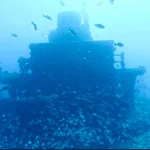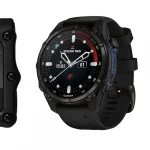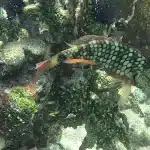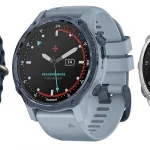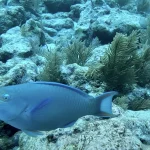The Dive Referral Process Made Simple
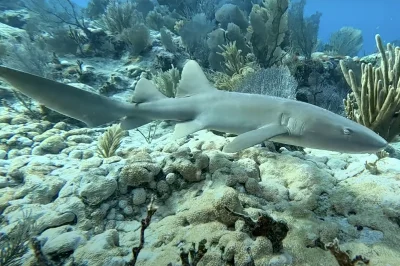
Table of Contents
- The Dive Referral Process Made Simple
- Where to Finalize Your Certification in Key West
- Avoiding Common Mistakes During Your Dive Certification
- Trends in Dive Training and Certification
- Diving Certification Myths Debunked
- Selecting the Best Dive Sites for Your Certification Dives
- Innovative Certification Programs in Key West
- Risk Management and Safety in Dive Certification
Introduction
Key West, renowned for its vibrant marine life and stunning dive sites, offers the perfect backdrop for scuba diving enthusiasts to finalise their certification. This guide is crafted to help you navigate the nuances of completing a dive referral in this tropical paradise, ensuring a seamless and enriching experience. Whether you’re busting myths or understanding the latest trends, our data-driven insights aim to maximise your dive adventure.
The Dive Referral Process Made Simple
Where to Finalize Your Certification in Key West
When deciding where to complete your scuba certification in Key West, several dive centres stand out due to their exemplary review scores, stringent safety records, and access to a wide variety of dive sites. Among the top contenders are Captain Hook’s Dive Key West, Southpoint Divers, and Key West Scuba Diving. Each offers a unique combination of safety, customer satisfaction, and versatility to suit different diver preferences and skill levels.
Captain Hook’s Dive Key West is a family-owned operation located conveniently near Duval Street at 1708 N. Roosevelt Blvd. Known for being awarded “Best Dive Shop” in the Florida Keys multiple times, this centre combines excellent customer service with comprehensive safety protocols. They provide access to iconic dive sites such as the Vandenberg wreck, coral reefs, and even sandbar dives, catering to beginners and advanced divers alike. Their broad range of offerings — including snorkelling, fishing charters, and sunset cruises — enhances the overall experience, making it a well-rounded choice for certification finalisation.
Southpoint Divers is highly praised for its personalised service and strong safety focus, especially when navigating challenging conditions around wreck sites like the Vandenberg. Their divemasters are noted for carefully pairing divers and providing thorough pre-dive briefings, making them a top choice for those prioritising safety and expert guidance. Customer reviews consistently mention repeat visits due to their reliable and friendly approach.
Key West Scuba Diving, a PADI 5 Star Centre, excels in versatility by offering controlled dive experiences that accommodate mixed experience groups. Their professional captains and guides adjust dive sites daily based on weather and visibility, ensuring safety without compromising adventure. With hundreds of positive verified reviews, they are a trusted hub for both certification courses and fun dives on reefs and wrecks.
| Dive Centre | Review & Safety Highlights | Top Dive Sites | Versatility & Extras |
|---|---|---|---|
| Captain Hook’s Dive Key West | Award-winning, family-owned, strong safety culture | Vandenberg Wreck, coral reefs, sandbar dives | Snorkelling, fishing charters, sunset cruises |
| Southpoint Divers | Expert dive guides, personalised safety briefings | Vandenberg Wreck | Focused on wreck dives, small groups for tailored experiences |
| Key West Scuba Diving | PADI 5 Star Centre, extensive verified reviews | Vandenberg Wreck, assorted coral reefs | Adaptive dive planning, mixed experience levels welcomed |
In summary, if your priority is a broad aquatic experience with strong brand recognition and dependable safety, Captain Hook’s is an excellent pick. For those focused heavily on technical wreck diving with personalised attention, Southpoint Divers delivers high marks. Meanwhile, Key West Scuba Diving appeals to learners looking for PADI-certified instruction and versatile dive site options customised daily by experienced crews. Each diver can find a centre in Key West that best suits their certification finalisation needs while ensuring enjoyable and safe underwater adventures.
Where to Finalize Your Certification in Key West
Common Mistakes During Your Dive Certification and How to Avoid Them
When completing your dive certification in Key West, becoming aware of typical errors can make a significant difference in your success and safety. Understanding these pitfalls is essential both for fresh divers and those finalising a referral certification.
Rushing Through the Course
A frequent mistake is rushing to complete the course quickly, often leading to overwhelmed learners who miss crucial concepts or skills. Overloading information or skipping practice sessions can diminish your confidence and preparedness underwater. Instead, focus on absorbing the theory and taking your time practising skills both in the pool and open water. Request additional practice sessions or reviews if needed to build muscle memory and comfort.
Poor Buoyancy Control
Buoyancy issues cause many certification challenges. Failure to perform regular buoyancy checks or rushing ascents and descents can lead to discomfort, inefficient air use, or even injury. Proper buoyancy management comes from consistent practice of neutral buoyancy in shallow water and ensuring your equipment fits well. Avoid carrying excess weight, as overloading gear can complicate buoyancy control.
Equipment Oversights
Skipping pre-dive buddy checks or neglecting gear maintenance risks equipment malfunctions and can cause emergency situations. Always perform thorough checks of your BCD, regulator, hoses, and gauges before each dive. Investing in your own well-fitted personal gear improves comfort and familiarity, enhancing safety and ease during certification dives.
Neglecting Equalisation and Breath Control
Many divers forget to equalise pressure early and often during descents, leading to ear or sinus discomfort and potential injury. The best strategy is to equalise gently at shallow depths frequently. Another critical error is holding your breath underwater, which can cause dangerous lung overexpansion injuries. Maintain slow, steady breathing, especially during ascents.
Communication and Safety Protocols
- Failing to ask questions or voice concerns: Always communicate openly with your instructors to clarify dive plans and safety procedures.
- Skipping safety stops: Never omit safety stops designed to allow safe nitrogen off-gassing; they are integral to avoiding decompression sickness.
Physical Management and Dive Planning
- Inadequate hydration: Dehydration elevates risks such as fatigue and decompression sickness. Drink plenty of water before and after dives.
- Overexertion: Avoid pushing beyond your fitness or skill levels; dive within your personal limits to maintain control and safety.
- Poor dive planning: Plan your dives carefully, considering depth, duration, and ascent rate to reduce risks.
By prioritising a paced learning approach, maintaining good communication with your instructors, committing to diligent equipment care, and respecting your physical limits, you set yourself up for a smooth certification experience in Key West’s beautiful diving environment.
Avoiding Common Mistakes During Your Dive Certification
Current Trends in Dive Training and Certification in Key West
Dive training in Key West reflects evolving global trends focused on flexibility, comprehensive education, and immersive experiences. One prominent movement is the rise of comprehensive certification pathways. For example, the PADI 2025 Master Scuba Diver challenge encourages divers to complete an integrated set of certifications—including Open Water, Advanced Open Water, Rescue Diver, and five specialty courses—alongside a minimum of 50 dives. This multi-tiered progression rewards ongoing education and skill development with incentives like prize giveaways, highlighting a trend toward structured yet motivating learning programs.
Digital learning has become a cornerstone of dive education, especially for knowledge development phases. Key West dive centres increasingly integrate e-Learning platforms, allowing students to complete theory modules online before practical dives. This blended learning approach offers added convenience and learning pace flexibility, appealing to divers who balance busy travel schedules or prefer self-directed study. Both newcomers and advanced divers benefit from this approach, which is now embedded in foundational courses like Open Water and Advanced Open Water certification.
Key West’s tropical environment uniquely supports specialized practical training. Dive referral programs allow students to complete confined water and theory parts elsewhere but finish open water dives amid the region’s renowned coral reefs. Additionally, resort courses offer non-certification experiences for visitors seeking one-day guided introductory dives, catering especially to casual divers or those deciding whether to progress into full certification.
Specialty Courses Available in Key West
Key West’s dive schools offer a variety of specialty courses, enabling divers to deepen expertise and explore diverse underwater skills:
- Advanced Open Water Specializations: This certification typically includes deep dives, wreck exploration, night diving, and underwater navigation — key skills tailored to the local marine environment.
- Rescue Diver Certification: A critical course emphasising emergency management and diver safety, forming a prerequisite for higher certifications such as the Master Scuba Diver credential.
- Other Specialty Courses: While specific specialty offerings vary, many centres provide tailored courses in areas like underwater photography, buoyancy control, and marine ecology, allowing divers to customise their training to personal interests.
These specialty options often integrate with advanced certification tracks, reflecting the industry trend toward more modular, customisable dive education paths. Dive operators supporting multiple certification agencies, including PADI, SSI, and NAUI, further allow divers to choose routes best matching their goals and travel plans.
Summary of Key Certification Options in Key West
| Certification Type | Key Features | Provider Examples |
|---|---|---|
| Open Water | Includes e-Learning, confined water skills, and open water dives | Key West Dive Centre, Captain Hook’s Dive Key West |
| Advanced Open Water | Specialized dives: deep, wreck, night, navigation | Captain Hook’s Dive Key West |
| Rescue Diver | Emergency response and safety skills, prerequisite for MSD | PADI affiliates in Key West |
| Resort Course | Non-certification, introductory single-day dive experience | Captain Hook’s Dive Key West |
This diversified training landscape empowers visiting divers to both complete their certification conveniently and expand their underwater capabilities with emphasis on safety, enjoyment, and environmental awareness.
Trends in Dive Training and Certification
Common Errors Made During Dive Certification and How to Avoid Them
Completing your dive certification smoothly requires not only mastering scuba skills but also avoiding some common pitfalls that many new divers encounter. Awareness of these typical errors and their practical solutions can empower you to confidently progress through your training while ensuring safety and enjoyment.
1. Skipping or Neglecting Pre-Dive Checks
One of the most critical mistakes during certification is failing to perform thorough pre-dive equipment checks. This includes not turning on the air supply, forgetting to verify each other’s gear in the buddy check, and omitting buoyancy control tests. Such oversights can lead to serious safety risks underwater.
- Solution: Always follow a standardised checklist before entering the water. This includes confirming air flow, testing regulator function, inspecting weight systems, and adjusting buoyancy compensators. Embrace the buddy system thoroughly by inspecting both your and your partner’s equipment together.
- Buoyancy tests in shallow water help you fine-tune your weighting, preventing rapid ascents or sinking during the dive.
2. Rushing Through the Course Materials and Skills
Many divers make the mistake of hurrying their certification process, eager to finish quickly but sacrificing crucial understanding and skill mastery. Rushing compromises safety and can lead to long-term bad habits.
- Solution: Take your time to absorb the theoretical knowledge and practice skill drills on dry land and in confined water sessions. Repetition is essential to build confidence and muscle memory.
- Interact frequently with your instructors, asking questions to clarify concepts rather than passing over uncertain topics.
3. Improper Breathing and Equalisation Practices
Holding your breath underwater or delaying ear equalisation are common errors that can cause discomfort or injury. Breath-holding risks lung overexpansion, while inadequate equalisation can result in painful barotrauma.
- Solution: Practice continuous, slow, and steady breathing throughout the dive. Whenever descending, equalise your ears as early and often as possible by gently pinching your nose and performing a controlled exhale.
4. Avoiding Open Communication with Instructors
Diver candidates sometimes hesitate to communicate openly with their instructors, fearing judgment or seeming inexperienced. This leads to missed learning opportunities and unresolved confusion.
- Solution: Establish proactive communication. Use your instructor as a coach and resource, seeking feedback and support to solidify your skills and gain deeper understanding.
5. Failing to Maintain Calm and Manage Stress
Nervousness or anxiety during training can increase air consumption and impair buoyancy control, reducing overall safety and comfort.
- Solution: Practice relaxation techniques such as deep breathing and positive visualisation. Trust your training, stay focused on each task, and remember to take breaks if feeling overwhelmed.
6. Choosing the Wrong Training Environment or Instructor
Opting for rushed or discount certification courses often leads to subpar training and inadequate preparation.
- Solution: Select reputable instructors and dive centres in Key West that emphasise patient coaching, personalised feedback, and a balance between fun and safety. A quality instructor ensures a rewarding learning experience and better long-term diving success.
By addressing these typical errors head-on and following the practical tips above, divers finalising their certification in Key West can enjoy a rewarding and safe path to becoming confident certified scuba divers.
My Favorite Dive Computers
I have compared the 3 top diving computers for each category to help making the right choice easier:
Diving Certification Myths Debunked
Top Dive Sites in Key West for Certification Dives
Key West boasts several prime dive sites ideal for completing certification dives, thoughtfully balancing accessibility, manageable depths, and vibrant marine ecosystems. These sites provide beginner-friendly environments to practice essential skills while immersing divers in the region’s renowned underwater beauty.
Sambos Reef System
- Accessibility: Easily reachable by boat from multiple dive operators based in Key West, the Sambos Reef complex includes Eastern, Middle, and Western sections, all popular among dive schools.
- Depth: Ranging between approximately 10 to 50 feet, these reefs offer divers a comfortably shallow environment ideal for open water certification limits.
- Marine Life Diversity: The reefs feature vibrant coral formations that provide habitat for a rich variety of species, including parrotfish, angelfish, spiny lobsters, and schools of snapper, allowing trainees to encounter diverse aquatic life in a controlled setting.
Eastern Dry Rocks
- Accessibility: Situated near other dive sites, it is conveniently included in boat trip itineraries, making it efficient to combine multiple dives during certification sessions.
- Depth: Characterised by coral fingers separated by sandy channels, the site maintains pleasant depths suited for novices, facilitating skill mastery without overwhelming conditions.
- Marine Life Diversity: Known for nurse sharks, moray eels, and numerous colourful reef fish, it enriches the learning experience by exposing divers to iconic Florida Keys marine species.
General Florida Keys Coral Reefs
- Accessibility: Close to shorelines and accessible from Key West, these reefs form part of the world’s third-largest living coral barrier reef system.
- Depth: Typically shallow, these reefs allow for safe and controlled open water training dives, staying well within certification depth limits.
- Marine Life Diversity: Diverse wildlife such as sea turtles, octopus, barracuda, and groupers commonly inhabit these reefs, providing exciting encounters for new divers.
Considerations for Advanced Divers
While sites like the USNS Vandenberg, a 520-foot shipwreck near Key West, are iconic and frequented by experienced divers, their depth and complexity make them unsuitable for certification dives. It’s advisable to reserve such locations for specialty or advanced-level certifications.
Accessibility and Support
- Key West dive centres such as Captain Hook’s Dive and Key West Scuba Diving offer tailored certification packages ensuring easy access to these dive sites with professional guidance.
- Boat trips regularly run to the reefs, with crew experienced in facilitating certification dives, ensuring safety and engagement throughout training.
For certification divers, the combination of shallow depths, rich marine life, and convenient boat access throughout Key West’s reefs makes these sites an excellent choice for solidifying diving skills while enjoying the natural wonders of the Florida Keys.
Selecting the Best Dive Sites for Your Certification Dives
Innovative Certification Programs in Key West
Key West presents a broad spectrum of innovative diving certification programs tailored to suit a wide array of skill levels and diving interests. These programs uniquely blend accelerated learning, professional career training, and flexible skill refreshment options, leveraging the region’s world-renowned coral reefs and vibrant underwater ecosystems.
Accelerated and Flexible Certification Options
For divers seeking efficient certification, Captain Hook’s Dive Key West offers a 3-5 day full certification program that integrates e-learning modules, allowing students to complete theory work online before arriving. This hybrid approach reduces classroom time and expedites the checkout dives in open water, catering perfectly to travellers with limited schedules. Additionally, their Resort Course is a non-certification option designed for beginners wishing to enjoy supervised reef dives after a single day of instruction, ideal for tourists wanting a taste of diving without long-term commitment.
Career-Oriented and Intensive Professional Programs
SNUBA Key West and DiveMaster Key West stand out with their professionally focused, longer-term training. The 8-week Divemaster program at SNUBA combines traditional PADI Dive Master certification with SNUBA Guide training — a niche offering where divers learn to use a surface-supplied breathing system that blends snorkelling and scuba diving techniques. This dual certification prepares graduates for diverse roles in the diving industry. Complementing this, DiveMaster Key West’s program uniquely includes hands-on crew experience on dive vessels, providing real-world operational skills alongside classroom instruction. Their comprehensive training covers varied ecosystems, such as wrecks and grasslands, adding considerable depth to career preparation.
Skill Retention and Specialty Refresher Courses
Recognizing that many experienced divers may have been inactive, Captain Hook’s also offers a Refresher Program designed for skill reacquisition without requiring full recertification. This program includes classroom review, pool exercises, and two coral reef dives, efficiently restoring confidence and competence in a short timeframe.
Advanced and Specialty Training
While Key West primarily focuses on broad certifications, its proximity to the diverse marine habitats makes specialty courses such as wreck diving, night diving, or marine conservation relevant and highly popular. Locally, some providers customise specialty programs to match interest areas — from underwater photography to environmental stewardship — enhancing learning while catering to personal passions.
These programs reflect Key West’s innovative approach to diving education by combining flexible delivery methods, career pathways, and diverse training experiences, all situated in prime tropical waters. This breadth ensures learners at every level, from curious beginners to aspiring dive professionals, can find suitable pathways to complete or expand their certification in paradise.
Innovative Certification Programs in Key West
Managing Risks and Prioritising Safety During Your Dive Certification in Key West
Ensuring safety during your dive certification in Key West involves a combination of comprehensive training, professional guidance, and strict adherence to dive protocols designed to minimise risks.
Risk Management Training
Certification courses in Key West, such as Open Water and Advanced certifications, include rigorous safety education tailored to build your confidence and skills progressively. Key components of risk management training cover:
- Understanding and managing pressure-related risks like decompression sickness.
- Proper dive planning including buoyancy control and air consumption monitoring.
- Environmental awareness, such as recognising local marine hazards and current conditions.
- Emergency response techniques essential for handling underwater challenges safely.
This training ensures that even first-time divers understand how to prevent and mitigate risks effectively while diving in diverse Key West environments, from shallow reefs to deeper wreck sites.
Qualified Instructors and Accredited Programs
Courses are delivered by experienced instructors affiliated with internationally recognised agencies such as PADI, NAUI, and SSI. These agencies maintain strict safety standards that include:
- Thorough equipment use training and pre-dive safety checks.
- Enforcement of the buddy system to maintain constant diver communication underwater.
- Protocols for safe depth limits and decompression stop management.
Choosing a dive school with certified instructors ensures that safety is a priority from your first confined water session through your open water dives.
Emergency Preparedness and Refresher Training
Certification programs emphasise readiness for uncommon but critical situations such as air supply issues or entanglement. Rescue Diver and refresher courses update skills in:
- Underwater rescue techniques and panic management.
- Navigation and communication under unexpected conditions.
- Handling sudden changes in weather or visibility common around Key West reefs.
All training dives take place in controlled environments with close instructor supervision to promote safety while building competence.
Practical Safety Tips for Certified Divers
- Adapt your dive plan: Avoid sites with strong currents or poor visibility without adequate experience.
- Use dive computers: Monitor depth and time closely to prevent decompression sickness.
- Always dive with a buddy: Maintain communication and support to enhance safety.
- Continue education: Pursuing advanced or specialty training helps you stay updated on safety practices.
By adopting these practices along with ongoing education and attentiveness to local conditions, you can greatly reduce risks and boost your enjoyment of the stunning underwater world around Key West.
Risk Management and Safety in Dive Certification
Essential Safety Protocols and Emergency Preparedness for Scuba Divers in Key West
Exploring Key West’s underwater world is thrilling, but it demands strict adherence to safety protocols and emergency readiness. Experienced divers and first-timers alike must prioritise these measures to ensure memorable, incident-free dives.
Core Safety Practices
- Certified Training: Only certified divers, recognised by agencies such as PADI, SSI, or NAUI, should embark on dives here. Certification ensures mastery of essential skills like dive planning and emergency response, which are mandatory for joining guided trips or renting gear in Key West.
- Buddy System: Key West dive operators stress the buddy system’s importance. This involves pre-dive checks to confirm all gear functions, maintaining close proximity underwater to monitor air supplies and signals, and thorough post-dive logging of dive details and health status.
- Environmental Responsibility: To protect fragile reef ecosystems, divers must avoid touching coral or marine life, limit fin movements, and refrain from disruptive flash photography while submerged.
Advanced Safety Measures
- Air Management — The Rule of Thirds: Especially critical for wreck or technical dives, this practice allocates one-third of air for penetration, one-third for exiting the dive site, and one-third as an emergency reserve, preserving breathing gas for unforeseen circumstances.
- Navigation Best Practices: Divers should move deliberately to avoid stirring up sediment or damaging environments. Use surface marker buoys (SMBs) to improve visibility to boats and support teams during ascents.
Emergency Equipment and Training
- Essential Gear: Carry a dive knife for entanglement, underwater flashlight for visibility, whistle for signalling, and SMBs as safety markers.
- Scenario Preparation: Reputable dive operators in Key West conduct practical drills covering lost gear retrieval, emergency air management, and oxygen administration for decompression sickness.
Health and Regulatory Considerations
- Pre-Dive Health Checks: Those with respiratory conditions (e.g., asthma) should seek physician clearance before diving, as lung performance under pressure is a critical concern.
- Physical Fitness: Avoid diving when fatigued or under the influence of alcohol to reduce risk factors. Staying hydrated and well-rested enhances safety.
- Regulatory Compliance: Dive shops rigorously enforce safety protocols aligned with site-specific risk assessments and maintain emergency support on standby, including first aid and oxygen kits.
Following these rigorous but straightforward safety standards enables divers to enjoy Key West’s spectacular marine environment confidently and responsibly.
Top Equipment Rental Providers in Key West
For divers arriving without personal gear or seeking latest equipment, two leading providers stand out in Key West for reliability, broad selections, and quality service:
- Captain Hook’s Dive Centre
Location: 1708 N. Roosevelt Blvd., Key West
Highlights: Awarded Best Dive Shop (2024), offers extensive rental gear including regulators, BCDs, wetsuits, and tanks. Runs twice-daily dive trips including coral reefs and famous wreck sites like the Vandenberg. Equipped with expert guides and on-site gear repair for additional convenience. - Lost Reef Adventures
Location: Key West Bight Marina
Highlights: Known for customer-friendly service offering full equipment rentals alongside dive certifications (Resort Course, Open Water). Specialises in guided reef and wreck dives, sunset cruises, and custom group excursions tailored to all skill levels.
Both centres provide quality rental equipment that meets rigorous maintenance and safety standards, ensuring divers can equip comfortably without lugging heavy gear.
Marine Conservation Involvement by Key West Divers
The diving community in Key West actively supports local marine conservation efforts, blending tourism with environmental stewardship:
- Collaborative Partnerships: Dive operators work shoulder-to-shoulder with the Coral Restoration Foundation™ and NOAA initiatives, supporting coral nursery maintenance and reef restoration projects. Operators like Conch Republic Divers and Rainbow Reef Dive Centre lead these conservation-driven dives.
- Hands-On Restoration: Divers participate in outplanting resilient coral species and help remove invasive lionfish, which threaten native ecosystems. These efforts are often integrated into regular dive tours, raising awareness and allowing divers to contribute directly.
- Community Education: Many Key West dive shops offer educational briefings highlighting threats like stony coral disease and promote sustainable diving practices. This outreach nurtures responsible behaviour both underwater and above sea level.
Through these concerted efforts, Key West’s dive community serves as a vital partner in preserving the extraordinary underwater environment that makes this destination so coveted.
Sources
- Captain Hook’s Dive Key West
- TripAdvisor – Southpoint Divers Reviews
- Key West Scuba Diving Official Site
- Siladen – 7 Mistakes to Avoid During Your First Dive Course
- PADI Blog – 5 Common Mistakes New Scuba Divers Make
- DAN – 7 Mistakes Divers Make and How to Avoid Them
- Dive Magazine – PADI Launches 2025 Master Scuba Diver Challenge
- Key West Dive Center – Certifications and Courses

